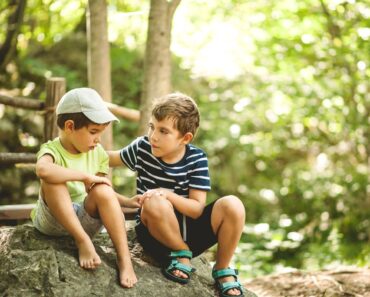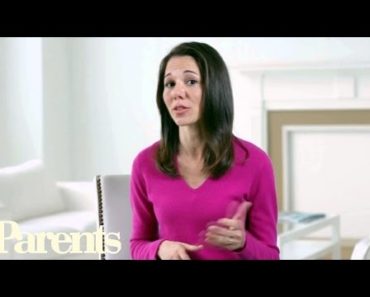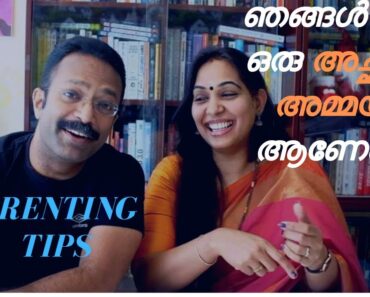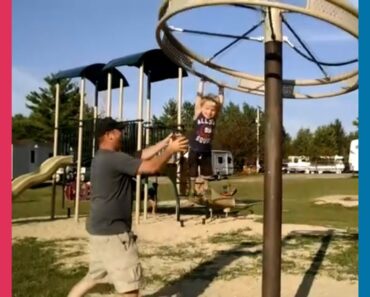The day my husband died after battling years of addiction is a day I’ll remember forever. I was at my family cottage visiting my parents when the phone rang. I remember the sound of my mom’s voice as she answered the phone and said “okay, I’ll tell her.”
I remember the feeling of her arms hugging me tightly as the walls fell away and I sobbed. But what I remember most is telling my daughter that her dad had died.
Frozen in my mind is the image of my sweet little five-year-old, walking up the forest path towards me, blissfully unaware of the news I suddenly realized I had to deliver.
The memory is etched in my mind, forever haunting me with its pain and beauty.
We met on the path and I stopped, sat down on the stone step and pulled my daughter into my lap. Smiling, shaking, and crying, I said “Brooklyn, Daddy died”. We talked about how we wouldn’t be able to hug Daddy or talk to him anymore, but we could talk about him and look at pictures of him whenever we wanted.
Brooklyn told me that she wasn’t sad because she could close her eyes and see him in her brain whenever she wanted. My heart broke open with love for her, her sweet innocence and her profound clarity in that moment.
Teaching kids to grief in healthy ways
According to the Canadian Alliance for Grieving Children and Youth, one in 14 youth will experience a death of a parent or sibling by the time they turn 18. In addition, every year 203,000 youth will experience the death of someone in their extended family.
Most of us aren’t prepared to face the death of a loved one ourselves, let alone to coach our kids through it. This was my first experience talking about death and grief with my kids and I had no idea what I was doing. I knew I needed help.
Over the next few months, I began seeing a grief counsellor, who encouraged me to engage with my kids about what had happened, not to try to skate around it. “One of the best things we can do for kids is to teach them how to grieve in healthy ways,” says Andrea Warnick, a registered psychotherapist, RN, and thanatologist.
Building community can also help; I started meeting other young widows, and soon a few of them became my closest friends. Warnick and my new widow besties were my lifeboats in a sea of grief that threatened to drown me.
Turning grief into passion
In fact, a few years after meeting these other young widows, we decided to turn our lived experience and our shared passion for mental wellness and self-care into a business. In 2019, our shop Crying Out Loud was born.
We offer supportive, uplifting gifts for every occasion, like one of our curated care packages which includes items to help with all of life’s ups and downs.
As young widows, we’ve learned so much in our years deep in the trenches of grief, trauma and bereaved parenting, including that it’s never too early to begin these conversations about death with our kids. Together, we’ve used this collective lived experience and leveraged Warnick’s expertise to put together a primer below on how parents and caregivers can talk to their children about death, and how best to support grieving kids.
We are hopeful that the lessons we’ve learned and the wisdom we’ve gained can help make these tough conversations with kids a little easier and a little lighter.
How to talk to kids about death
Talking about death and grief has become so normalized within the Crying Out Loud family. In fact, the Crying Out Loud kids have even formed a ‘dead dad’s club’. And just like us, they find love, support and laughter with each other and with each other’s grief. It makes such a difference to connect with someone who knows what you are going through.
We celebrate Father’s day together with a McDonald’s picnic in the park and release balloons to remember the dads in our lives. These rituals and traditions help to connect us and our children to the people we’ve lost.
Fostering an environment where our children know it’s okay to talk about their feelings, ask questions about death and dying and where we talk about our dead people a lot are the cornerstones of how we are parenting our kids in the shadow of their grief.
We aren’t perfect at it, but we know deep down that we can do hard things. It is hard work bearing witness to our children’s grief and sorrow, but it is so worth it.
Sarah Keast is one of the co-founders of Crying Out Loud, a Toronto-based mental wellness brand that curates supportive, uplifting gifts for all of life’s occasions.
She is also a writer and public speaker and her writing has been published in Chatelaine, Today’s Parent, CBC.ca and She Does The City. She has appeared on a number of podcasts as well as delivered a TedX talk on the power of empathy and compassion in the face of the opioid crisis.
She was honoured by Chatelaine magazine in 2019 by placing her on their ‘Women of the Year’ list.
https://lighthousegriefsupport.org/
Get parenting news, expert advice, info on secret sales, discounts and the best-ever products. Sign up for the Today’s Parent newsletter.

































